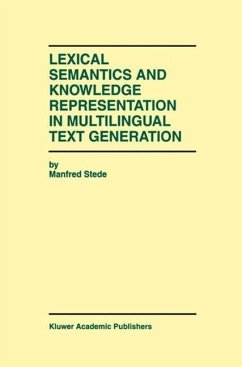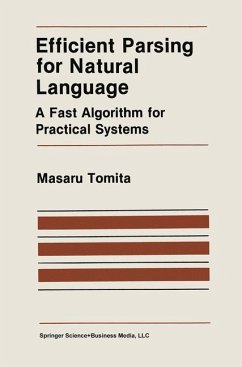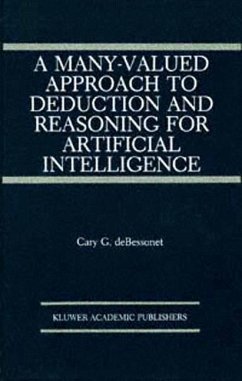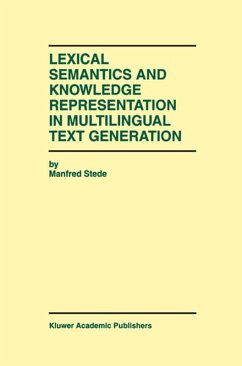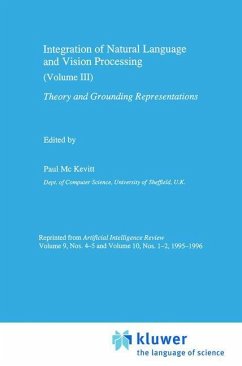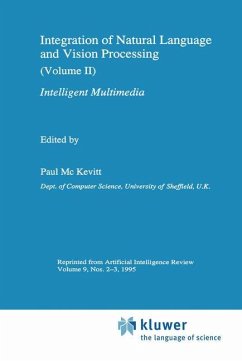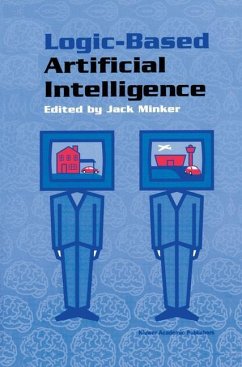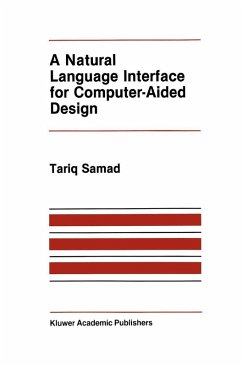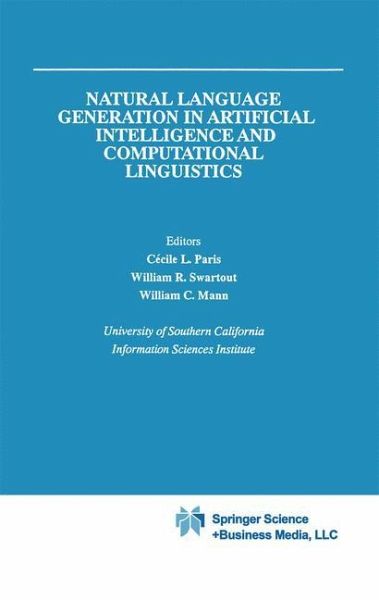
Natural Language Generation in Artificial Intelligence and Computational Linguistics

PAYBACK Punkte
77 °P sammeln!
One of the aims of Natural Language Processing is to facilitate .the use of computers by allowing their users to communicate in natural language. There are two important aspects to person-machine communication: understanding and generating. While natural language understanding has been a major focus of research, natural language generation is a relatively new and increasingly active field of research. This book presents an overview of the state of the art in natural language generation, describing both new results and directions for new research. The principal emphasis of natural language gene...
One of the aims of Natural Language Processing is to facilitate .the use of computers by allowing their users to communicate in natural language. There are two important aspects to person-machine communication: understanding and generating. While natural language understanding has been a major focus of research, natural language generation is a relatively new and increasingly active field of research. This book presents an overview of the state of the art in natural language generation, describing both new results and directions for new research. The principal emphasis of natural language generation is not only to facili tate the use of computers but also to develop a computational theory of human language ability. In doing so, it is a tool for extending, clarifying and verifying theories that have been put forth in linguistics, psychology and sociology about how people communicate. A natural language generator will typically have access to a large body of knowledge from which toselect information to present to users as well as numer of expressing it. Generating a text can thus be seen as a problem of ous ways decision-making under multiple constraints: constraints from the propositional knowledge at hand, from the linguistic tools available, from the communicative goals and intentions to be achieved, from the audience the text is aimed at and from the situation and past discourse. Researchers in generation try to identify the factors involved in this process and determine how best to represent the factors and their dependencies.





